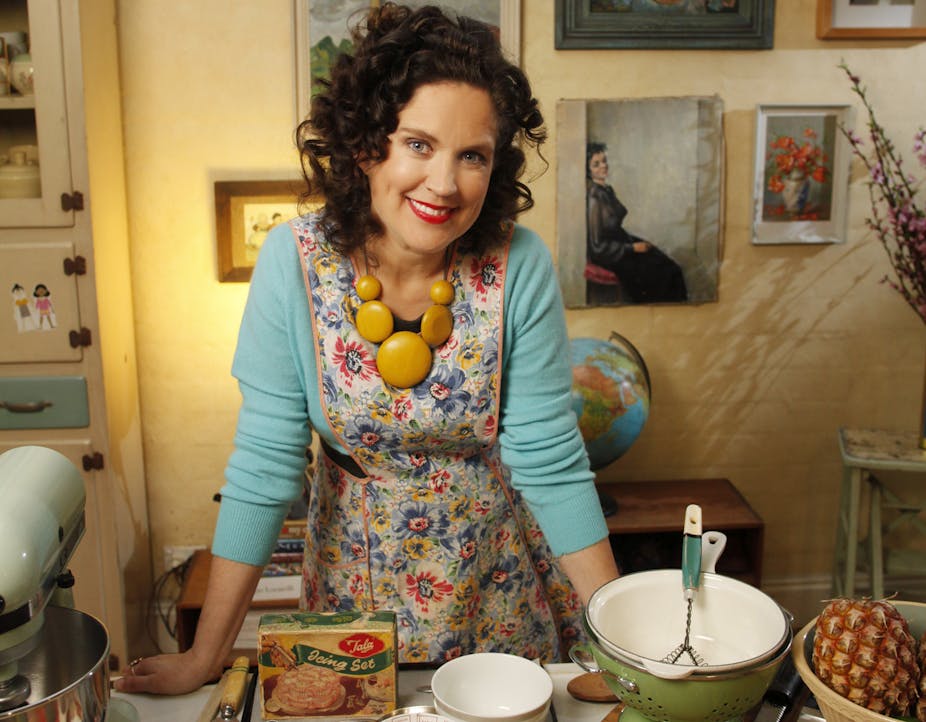The penultimate act in this year’s election drama will be … a cook-off. This campaign has largely steered away from “entertaining politics”, but at the last hurdle, Messrs Rudd and Abbott have fallen for the allure of celebrity. At the death, the would-be prime ministers will try to persuade us on personality alone. And they’ll be doing it on ABC television show Kitchen Cabinet. Why? And who does this last gambit favour?
The answer to the latter question is Tony Abbott. But we have to go around the world to understand why Kitchen Cabinet cooks better with the Coalition.
Kevin Rudd has already been criticised for taking part in the show. Opponents think the prime minister should have been thinking about Syria, not spatulas. In his defence, we might say that modern media politics demands a time on celebrity duty.
Unfortunately for Labor, a bad choice looks worse when we contemplate the politics of TV dinners. Cooking is the most totalitarian corner of the inherently conservative reality television market. The way that food is imagined, prepared and consumed onscreen conjures up politically-loaded visions of how life should be. And the vision is never about a fair go.
Things weren’t meant to get this way. It’s just that food and reality television are a bad recipe.
Let’s go back in time to noughties Britain. Back then, many television executives decided that reality work shows - like Dragons’ Den, where entrepreneurs pitch their ideas to would-be investors - could teach us useful lessons about working, getting ahead and getting on with people. Television chef Jamie Oliver, however, had already seized the idea.
At first, Oliver used cooking to put class and social justice back onscreen. The loveable mockney taught audiences that cooking was caring. His Fifteen experiment - later exported to Melbourne - educated viewers on the social barriers that prevented working class kids from succeeding. This was a slap in the face to other lifestyle shows that were only interested in high income, well-educated middle class people.
His next project, Jamie’s School Dinners, was even more radical. In the context of fears over “Broken Britain” - a nation driven to the dogs by feral youth lacking in skills and human decency - Oliver argued that the problem was food. Or, more precisely, the trans-fatty e-numbered garbage that Thatcherite reforms let schoolkids “choose” for their cafeteria lunches. Consumer choice was a bad thing. Kids should be given what they need, not what they want. And if the Labour government of the time was really a Labour government, it should put this principle into policy
Then Jamie really went for it. He decided that Broken Britain need to reinstate the Ministry of Food, to teach everyone about the value of good nutrition.

By now, the young chef had become a recognised public expert, whose views mattered on a political level. And his vision was distinctly Labour: the free market was a culinary disaster, and state intervention from big government was good.
He doesn’t think that anymore.
Last week, Oliver surveyed the failure of his visions, and decided that working class people are to blame. Young English kids can’t get decent jobs because they don’t like working. Eastern European migrants are happy to ignore workplace regulations and work all the hours God sends, and that’s why they get on. Poor families can still afford big TVs, so their cries of poverty ring hollow. Austerity Britain? Hardly. Oliver seems to agree with the adage, repeated by the likes of Winston Churchill, about the inevitable path to conservatism that age and wisdom brings.
On the other hand, it could also be that Oliver has succumbed to the global philosophy of reality television. There is no format that better champions the spirit of ruthless individualism and, paradoxically, acceptance of authority. Reality television goads its participants to relinquish every right they have - privacy and dignity - in the pursuit of success.
This unedifying proclivity becomes especially vicious when it gets into the kitchen. To see how, let’s go to Hollywood.
Gordon Ramsay’s Hell’s Kitchen takes Oliver’s idea - that successful people have to put up with hard work and the odd indignity - and strips it of any redeeming social value. Contestants are deliberately and routinely abused and humiliated. Behind the entertainment, the truth is that contestants are subjected to inhumane hours doing two jobs: making food, and making audiences laugh. But, hey, that’s their choice, right?
Wrong. The evolution of television cooking tells a stark political narrative. It’s the last chance saloon for the desperate, and hardly a good look for a politician. People can only get ahead by looking after themselves and not worrying about piffling matters like rights. You can’t help folks who don’t want to be helped. And if you want to succeed you should be ready to do and put up with anything. There’s no such thing as society in the kitchen.
That’s why Tony Abbott will look better in an apron.

